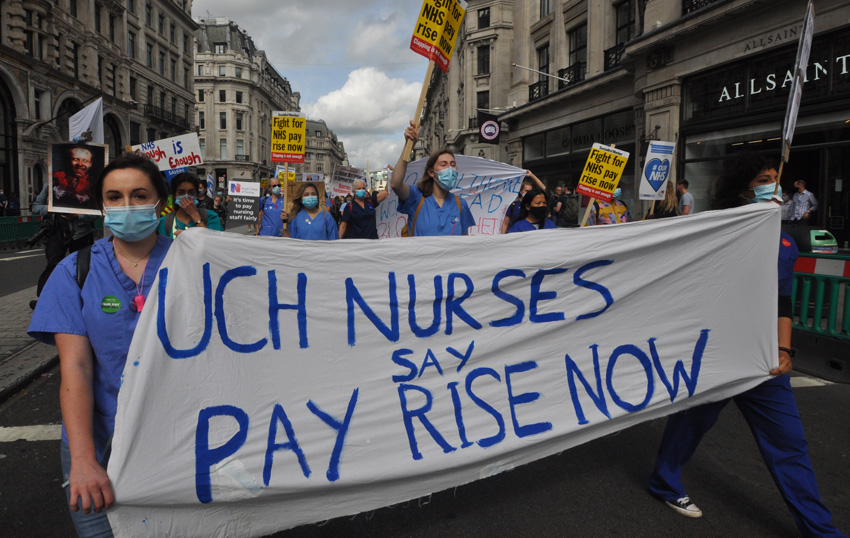
THE BMA (British Medical Asociation) has asked the government for more clarity on staffing of new Nightingale facilities.
Commenting on the planned new Nightingale facilities announced by NHSE (NHSEngland), Dr Vishal Sharma, BMA consultants committee chair, said: ‘The government is once again putting plans into place to attempt to cope with what could be a significant rise in the numbers of patients needing hospital care.
‘However, as with the previous Nightingale plans, there is no real clarity on where the staff will come from to work in these eight sites.
‘Even though they are on existing hospital premises, it is not clear how many doctors and other healthcare staff will be needed.
‘There are already over 100,000 staff vacancies in the NHS and we don’t simply have a bank of spare doctors waiting to take up jobs.
‘To compound the problem, thousands of healthcare workers are currently infected with Covid-19 and having to isolate.
‘Just before Christmas, over 18,000 staff in acute trusts in England were off either with Covid-19 or because they are self-isolating.
‘This equates to 136 Covid-related absences and 465 total off sick for every acute hospital trust in England. That figure is expected to rise when new data is published later this week.
‘The government needs to be absolutely clear about how these Nightingale sites will operate, where the staff might come from and what the impact could be on other healthcare services if doctors and other healthcare professionals are to be diverted from providing non-Covid care and services.
‘For staff who are at work, their wellbeing and safety needs to be a priority.
‘The BMA has recently written to all hospital chief executives in England, urging them to provide front-line staff with stronger respiratory protective equipment (RPE) – such as the FFP3 face masks – and conduct risk assessments to ensure staff are properly protected.
‘Doctors and other staff putting themselves forward to work on these Nightingale sites cannot be expected to do so risking their own health, and potentially their lives.’